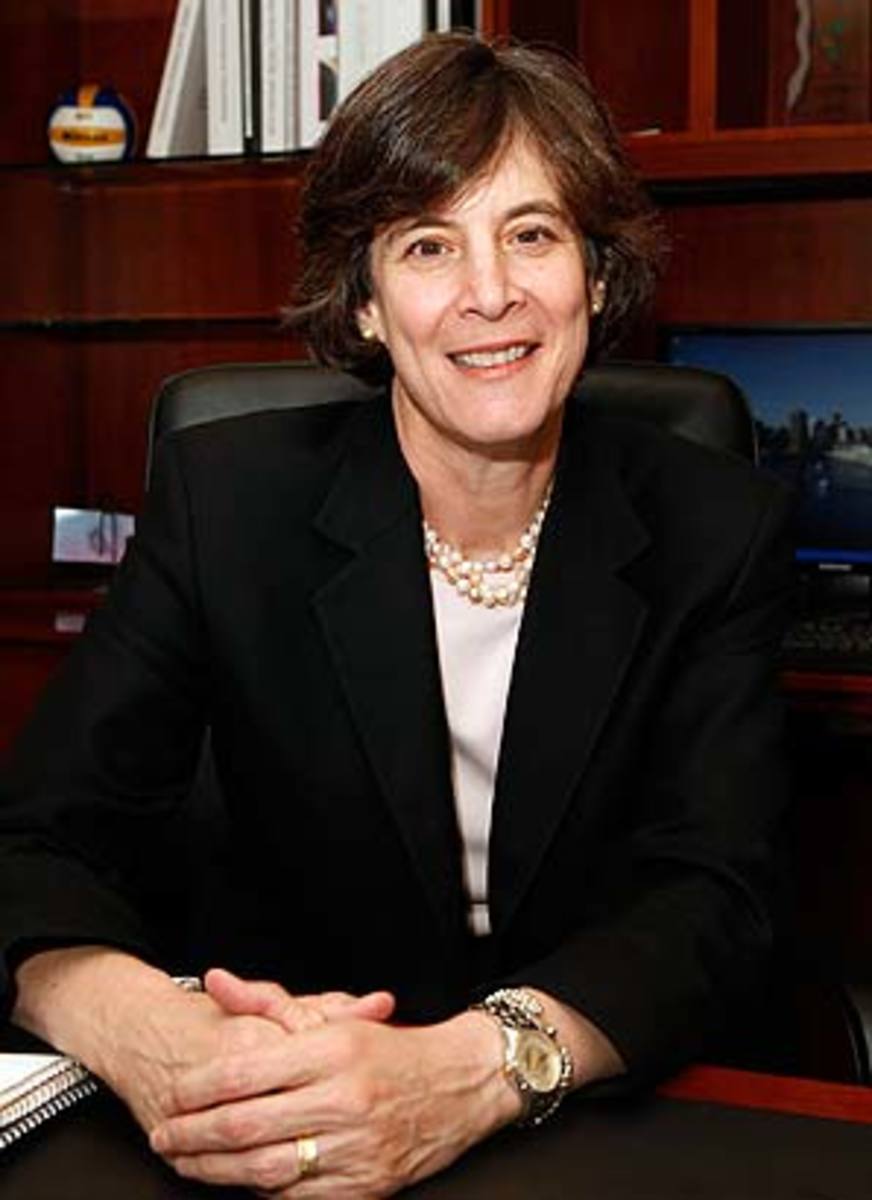USOC begins long road back with acting CEO Streeter's resignation
In answering the question of when rather than if, the USOC announced that acting CEO Stephanie Streeter will be on her way out from the top of the U.S. Olympic Committee. Consider it a good start.
Over the past few months, a series of missteps by the committee's leadership made it impossible for Streeter to build credibility in her post as well as be considered for the permanent spot. For starters, the USOC and IOC feuded publicly over the revenue sharing agreements. The USOC receives 12.75 percent of revenues from U.S. television contracts and 20 percent from a joint marketing agreement, percentages that offend many IOC members, who see the USOC and its interests as arrogant profiteers who provide little in the way of direction and cooperation for the dollars they take in. The USOC refused to budge on the numbers and the IOC agreed to table the discussion until further notice.
In June, neither Streeter nor Chairman Larry Probst went to a meeting in Switzerland, where most of the 106 IOC members were set to hear presentations from the bidding cities. This was a chance for the IOC members to try to get to know the newest members of the USOC's revolving-door leadership. Their absence was a bad blunder. Instead of addressing their shortcomings head-on, the leadership avoided meetings and phone calls that would only confirm how poorly they were perceived. Without this necessary face time with the IOC membership, a group that values the personal relationships that guide their backroom dealings, neither Streeter nor Probst could as effectively campaign for Chicago as, say, Carlos Arthur Nuzman, a Brazilian IOC veteran who ran the bid for Rio.
In July, the USOC went ahead with plans to announce to formation of an Olympic television network, even after the IOC told it to hold off because of, among other concerns, a conflict with Universal Sports, a partner of Olympic rights holder NBC.
On Friday, when Chicago was eliminated with only 18 votes in the first round of voting for the right to host the 2016 Games, it was a direct referendum on the mess into which the USOC had dissolved. IOC members hinted privately and publicly that the USOC effectively killed Chicago's bid.
It took less than a week for changes to come to the USOC. In a press release issued on Wednesday, Probst called Streeter an "outstanding chief executive" and that he was "disappointed when Stephanie told us she did not want to be considered for the permanent CEO position."
Streeter insisted that even though she had moved her family from her home in Milwaukee to near the USOC headquarters in Colorado Springs, she had made the decision not to seek the permanent spot a month and a half ago. "The only way I know how to do things is all in," she said by teleconference.
The truth is, there was great pressure from within the U.S. Olympic movement -- other board members, heads of national sports governing bodies especially --- to begin a necessary chain reaction and create needed stability for the U.S. Olympic movement. Her hefty salary, $560,000, was also a bone of contention among others in the U.S. movement, which in turn signaled to the international community that things were not going to get better.
"It does no good if the movement in the United States is confused and uncertain," Dick Pound, an IOC member from Canada said earlier this week. "I think people expect direction from such an august body."
Probst said that the search for a permanent CEO could take place after the Vancouver Olympics at the end of February. He also said he was unsure about his own future. "If you're asking me am I going to resign," he said, "I don't have any plans to do that. Having said that, I serve at the discretion of the USOC board."
Streeter's effective resignation is really just step one. For a country that often wins and always contends for the top of the medal count at each Olympics, the United States has relatively little administrative clout beyond the dollars that television and sponsorship money can generate. The U.S. has just two members on the IOC, Anita DeFrantz, 57, and Jim Easton, 74, both veterans with dwindling influence.
DeFrantz, a former rower, was once a vice president and member of the IOC's executive board, but no U.S. member sits on the 15-member body, which, for instance, recommended golf and rugby to the 2016 Games, while rejecting baseball and softball, sports whose governing bodies are both headed by Americans. Easton had been the longtime head of the International Archery Federation, but his term expired. With 26 summer sports on the current program and seven winter federations (skiing and skating events are combined into single federations), there is not a single U.S. head of an international sports governing body.
"We need to have a long-term strategy for engaging the International Olympic Committee," said Probst. "I don't mean one year or two years."
Probst said that the new CEO would ideally be savvy in both business and Olympic sports, be bilingual and be willing to travel extensively in order to build relationships and trust with IOC members."
Expect more dominoes to fall at the USOC over the next few months. A search committee chaired by USOC board member Bob Bowlsby will begin looking for Streeter's replacement at the end of the month. But things need to change decisively. Chicago produced a strong bid, including a tricky financial guarantee from the city council and support from the President and First Lady. The first-round smackdown was an embarrassment for them, too.
Privately, some USOC staffers worry about intervention from the White House, which created an Olympic office in June and may yet demand greater oversight of the committee. This is only the first step. But for a committee embarrassed, it's an important one.






